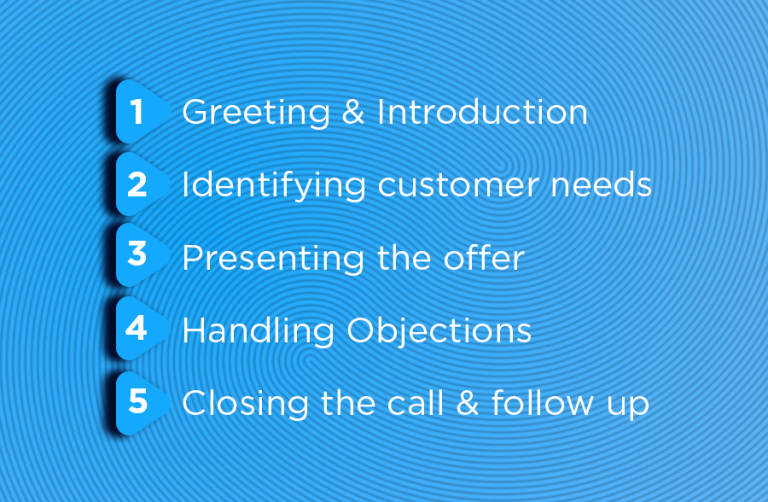Schedule a FREE call with our outsourcing expert now and get a precise quotation that meets your requirements. Don't wait - get started today!
Getting people to answer the phone is one thing—keeping them engaged and turning conversations into sales is where the real challenge begins. A well-planned telemarketing campaign isn’t just about making calls; it’s about creating meaningful interactions that lead to real business growth. This is where a BPO (Business Process Outsourcing) provider can make all the difference.
With the support of experienced agents, data-driven strategies, and the latest technology, you can maximize every conversation and boost your success rate. Whether you’re generating leads, closing sales, or nurturing customer relationships, the right BPO partner helps you do it more efficiently and effectively. Here’s how to make it happen.
Want to take your telemarketing campaign to the next level? Partnering with the right BPO can help you increase conversions, improve customer interactions, and streamline your sales process. Learn more about how outsourcing can transform your approach—explore expert strategies and best practices today!
The Science Behind Effective Telemarketing Calls
Telemarketing isn’t just an art—it’s also a science. Understanding how people process information, make decisions, and respond to persuasion can significantly improve your results. Techniques like mirroring, active listening, and strategic questioning can make your calls more engaging and lead to better outcomes.
1. Best Times to Make Telemarketing Calls
Timing matters. Calling at the right time increases the chances of reaching potential customers when they are available and willing to listen. Studies show that late mornings and early afternoons on weekdays often yield the best response rates. Avoid calling too early or too late, as people may be busy with personal or work-related tasks.
2. The Power of Tone and Pace in Phone Calls
A friendly tone and steady pace can make a huge difference. Speaking too fast may overwhelm prospective clients, while a monotone voice can make the conversation robotic. A warm, engaging tone and a natural speaking rhythm help maintain interest and make the interaction more personal.
3. How to Turn a Cold Call into a Warm Conversation
Cold calls don’t have to feel cold. To make the call relevant, start with a personalized introduction that mentions the recipient’s job title, industry, or company. Asking open-ended questions and showing genuine interest in their products or services can quickly build rapport and keep the conversation flowing.
4. The Role of Emotional Triggers in Closing Deals
People buy based on emotions. Understanding the emotions that drive decisions—such as trust, urgency, or the fear of missing out (FOMO)—can help shape a persuasive pitch. Highlight how your goods and services solve their pain points, and use storytelling to make your message more relatable and compelling.
Tips for Crafting a Winning Telemarketing Strategy
A successful telemarketing campaign doesn’t happen by chance. It requires careful planning, execution, and continuous improvement. Without a well-thought-out strategy, calls can feel aimless and unproductive. Here’s how you can create a telemarketing approach that delivers results.
1. Know Your Target Audience
Who are you calling? Are they decision-makers with specific job titles, or are they everyday consumers looking for a solution? Understanding your audience allows you to craft messages that resonate with their needs and pain points.
Segment Your List – Group potential customers based on industry, role, or previous interactions to ensure your pitch is relevant.
Research Your Prospects – Knowing their challenges and interests increases the likelihood of a meaningful conversation.
2. Prepare a Script, But Keep It Flexible
A telemarketing script provides structure and ensures consistency, but it shouldn’t make agents sound robotic. The best calls feel natural, like a real conversation.
Encourage Personalization – Agents should adjust their approach based on the customer’s responses, making each interaction unique.
Use Open-Ended Questions – Instead of just reading a script, train agents to ask questions that keep the conversation flowing.
3. Focus on Benefits, Not Just Features
People don’t just want to hear about what your product or service does—they want to know how it improves their lives. Shifting the focus to benefits makes your pitch more persuasive.
Address Pain Points – Highlight how your offering solves a problem or makes a task more manageable.
Use Real-World Examples – Providing relatable scenarios helps prospects visualize the value of your product.
4. Train Your Team Effectively
Proper training is essential whether you’re working with an in-house team or a BPO (Business Process Outsourcing) provider. Well-trained agents deliver better results and maintain higher customer engagement.
Product Knowledge – Agents should deeply understand your products or services to answer questions confidently.
Objection Handling– Equip them with strategies to overcome resistance without being pushy or aggressive.
Following these strategies can make your telemarketing campaign more effective, leading to better conversions and stronger customer relationships.
Common Mistakes to Avoid in Telemarketing Campaigns
Even the best plans can go wrong if you’re not careful. Here are some pitfalls to watch out for.
- Ignoring Compliance Regulations. Telemarketing is regulated in many countries. Make sure your campaign follows laws like the Do Not Call registry. Non-compliance can lead to fines.
- Overloading Agents with Calls. Quality matters more than quantity. If agents are making too many calls, the quality of conversations may drop.
- Failing to Follow Up. Not every call will result in a sale. Follow up with leads who showed interest but didn’t commit.
- Neglecting Feedback. Listen to what your customers are saying. Their feedback can help you improve your campaign.
Measuring the Success of Your Telemarketing Campaign
How do you know if your telemarketing campaign is working? Tracking the right key performance indicators (KPIs) ensures you can measure success and make necessary improvements. Without proper evaluation, you might waste time and resources on ineffective strategies.
1. Conversion Rates
This metric measures how many calls result in sales, sign-ups, or other desired actions. A high conversion rate means your campaign is effective, while a low rate suggests a need for adjustments in your script, targeting, or agent training. Comparing your results against industry benchmarks helps set realistic goals. Analyzing which conversations lead to conversions can also reveal the most effective approaches.
2. Customer Satisfaction
Happy customers are more likely to buy again, refer others, and engage with your brand in the future. Surveys, feedback forms, and follow-up calls can help gauge their satisfaction with the telemarketing experience. Identifying common pain points allows you to refine your approach and improve customer interactions. Measuring your Net Promoter Score (NPS) can also show how likely customers are to recommend your brand.
3. Call Duration
Longer calls often indicate meaningful conversations, but duration alone isn’t enough. Calls should be productive and lead to results, whether that’s a sale, an appointment, or another positive action. It’s important to balance quality and efficiency, ensuring conversations are engaging without dragging on unnecessarily. Analyzing where prospects lose interest can help refine your strategy and keep potential customers engaged.
4. Return on Investment (ROI)
ROI measures how much revenue your campaign generates compared to its cost, helping you determine its overall profitability. Breaking down costs and revenue sources can help you understand where your budget is spent and how to allocate resources more effectively. If certain call approaches or customer segments lead to higher ROI, refining your campaign based on these insights can improve future results.
By tracking these metrics, you can identify what’s working, make data-driven decisions, and continuously improve your telemarketing efforts.
Turning Challenges into Opportunities in Telemarketing
Every telemarketing campaign comes with obstacles, but the right approach can turn these challenges into chances for improvement. Here’s how to handle common issues and make the most of them.
-
Dealing with Call Reluctance Among Agents
Some agents may feel nervous or hesitant to make calls, especially if they face frequent rejection. Providing proper training, scripts as guides (not rigid rules), and ongoing support can help them feel more confident.
-
How to Keep Your Team Motivated During Long Campaigns
Long campaigns can lead to burnout or loss of enthusiasm. Keeping agents motivated with incentives, regular encouragement, and recognition of their achievements can help maintain high energy levels.
-
Overcoming Negative Perceptions of Telemarketing
Many people view telemarketing as intrusive or annoying. Focusing on genuine conversations, offering real value, and respecting customer preferences can improve how people see your calls.
-
Adapting to Changing Customer Preferences
Customer expectations and behaviors change over time. Staying updated on industry trends, listening to feedback, and adjusting your approach ensure that your telemarketing strategy remains effective.
Telemarketing That Delivers
Struggling to connect with the right customers? A well-planned telemarketing campaign can make all the difference. Book a FREE 60-minute business consultation with Magellan Solutions today and discover how our expertise can help your business grow.
We offer lead generation, appointment setting, customer engagement, and retention services, ensuring every call adds value. With 24/7 call center support, multichannel outreach, and data-driven strategies, we help SMEs improve customer interactions and increase conversions.
No commitments—just practical insights to refine your telemarketing approach. Let’s build a strategy that works. Contact Magellan Solutions now!














